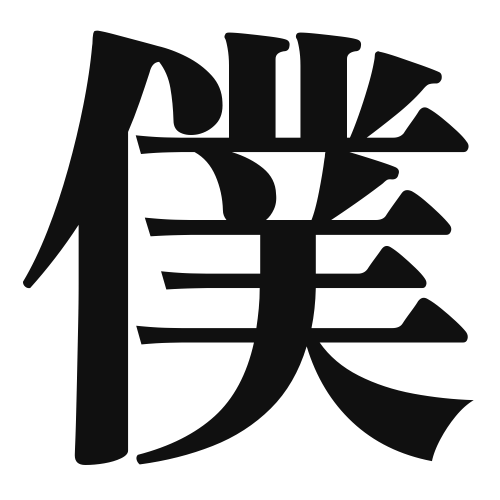1. Overview of Meaning
The kanji “僕” (boku) means “I” or “me” in a casual or informal context. It is primarily used by males, especially in conversations among friends or in relaxed settings.
2. Formation and Radicals
The kanji “僕” is composed of two parts: the radical “亻” (which indicates a person) and the character “僕” itself, which originally referred to a servant or a young man. This kanji is classified as a 形声文字 (phonetic-ideographic character), where the left part provides a clue about the meaning and the right part gives a hint about the pronunciation.
The radical “亻” is a variant of “人” (hito), meaning “person,” emphasizing its relation to human beings.
3. Examples of Usage
Common words and phrases that include “僕” are:
- 僕の (boku no) – “my” (used informally)
- 僕たち (bokutachi) – “we” (informal)
Example sentences in daily conversation:
- 僕は学生です。 (Boku wa gakusei desu.) – “I am a student.”
- 僕の友達が来るよ。 (Boku no tomodachi ga kuru yo.) – “My friend is coming.”
4. Synonyms and Antonyms
Similar kanji with related meanings include:
- 私 (watashi) – a more formal way to say “I” or “me,” used by both genders.
- 俺 (ore) – a more masculine and informal way to say “I,” often used among close friends.
Antonyms or contrasting kanji include:
- あなた (anata) – “you,” which is used to refer to the person being spoken to.
5. Cultural and Historical Background
The use of “僕” is deeply rooted in Japanese culture, reflecting social hierarchies and relationships. It is often associated with humility and informality, making it a common choice among younger males.
In terms of proverbs and idiomatic expressions, “僕” may not appear frequently, but it embodies the spirit of camaraderie and casualness in Japanese communication.
